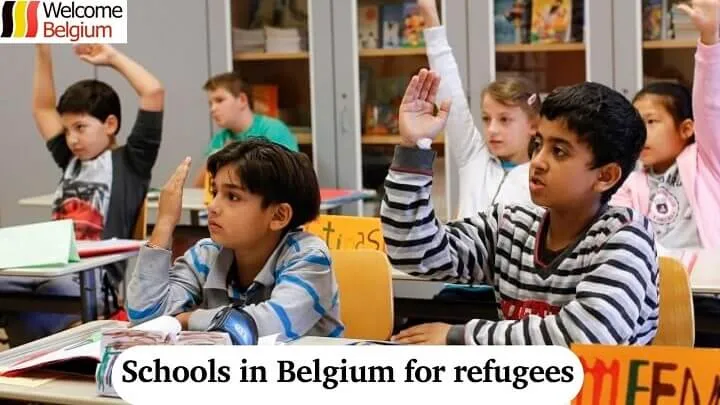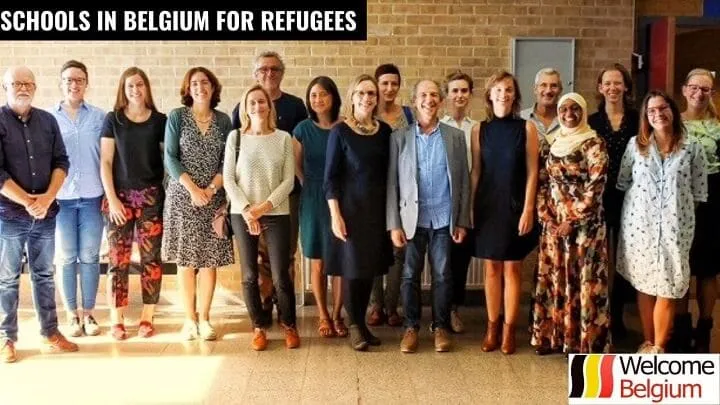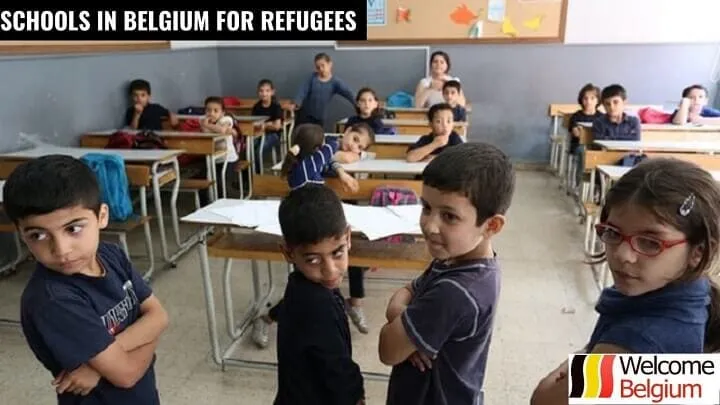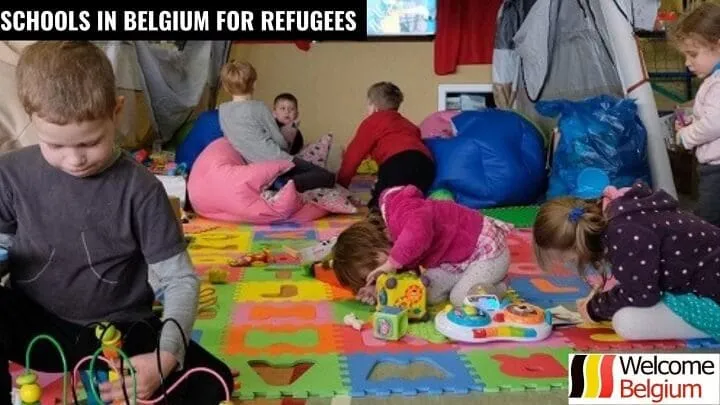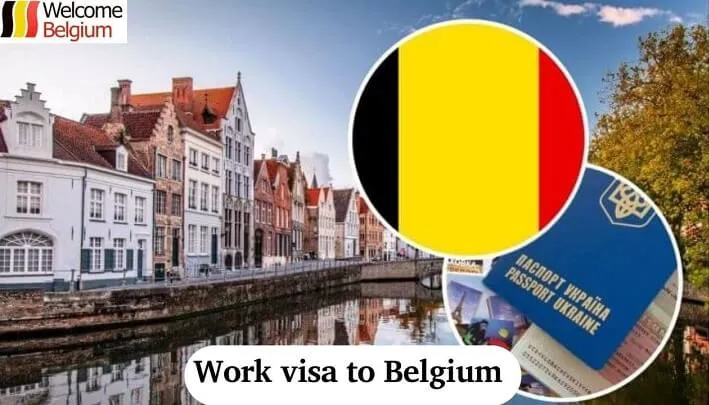Primary and secondary education is compulsory for all children in Belgium. This is provided for by the country’s legislation and monitored by government agencies. If you have recently arrived in Belgium, the school for your child will be selected by you or the government. This is monitored by CPAS at the refugee paperwork stage. In this article, we will consider all the nuances of getting an education by immigrants in the country.
[lwptoc]Registration of documents in an educational institution
Schools in Belgium accept children from the age of 3 years. The first grades are preparation for primary education. This stage is called crèche, it does not belong to kindergartens. If the child is under 5 years old, he can visit on the first day of his stay in the country. To do this, contact the staff of CPAS or Fedasil. They will help you complete the documents, select the nearest educational institution. Until the age of 6, children learn in a playful manner, social responsibility and communication with peers and adults are improving.
After the age of 6, the child enters an elementary general education school. This must be done a maximum of 2 months after arrival in the country. Conditions for adaptation have been created for refugees and immigrants, which are as follows:
- Transitional DASPA classes. Here they teach one of the official languages of Belgium. Not all schools have appropriate teachers. You must know about this in advance.
- For children over 12 years old, the OKAN program has been created, according to which the state language is studied as a separate subject.
- To enter a school in Belgium, refugees and immigrants need to choose an educational institution, collect documents for registration – permission to stay in the country, the results of a medical examination, confirmation of an insurance policy.
- Education is free, except for travel and meals. You must take care of this yourself.
Not all schools in the country have free places. This problem is relevant for large cities – Brussels, Antwerp. Therefore, you can apply to several educational institutions, this is not prohibited by local law. If you have trouble communicating in the local language, you can ask for an interpreter at the refugee centre. They must be provided free of charge.
Important: During the school year, you can transfer your child to another school that is closer to where you live.
Educational process: schedule, working hours
The schedule of classes is the same for all Belgian schools. The exception is private and specialized educational institutions. Schools in Belgium for refugees, foreigners and local residents are open from September 1 to June 30. The beginning of a new academic year is an acquaintance with teachers and teaching staff. Lessons start at 8:30, end at 15:00. Each lesson lasts 45 minutes. On Wednesday, all classes run until 12:00. Saturday and Sunday are official days off.
Holidays and vacations in Belgian schools:
- Autumn holidays from October 24 to November 4.
- Day of Remembrance for the events of 1918 – November 11.
- Holidays for Christmas – from December 26 to January 6.
- Carnival holidays – from February 28 to March 6.
- Easter – from April 4 to April 18.
- World Labor Day – 1 May.
- Ascension – from May 26 to 27.
- Holy Spirit Day – June 6th.
At the time of rest, teachers can set additional tasks. Sometimes schools in Belgium for refugees create language courses that you can attend in your spare time. This one is for high school students. For primary school students, the educational process of learning the state language is included in the general program.
Important: weekends and holidays may differ depending on the region of residence – Brussels, Flemish or Walloon region.
Types of schools in Belgium
In order to adapt your child to local social conditions, we recommend that you learn more about the stages of education in Belgian schools for refugees and immigrants. From 3 to 5 years old, children can attend kindergarten or school for pre-school education. It is best to send the child to a local school, where he will later move on to the primary and secondary stages of education. In the pre-school program for immigrants, the national language is intensively studied and social skills are formed.
Types of educational institutions by the age of the child:
- Primary – from 6 to 11 years. Subjects – reading and grammar, social science, geography, mathematics. To move to the next grade, the child must pass the test.
- Secondary – from 12 to 18 years. You need to go through the registration procedure again, as this is officially a new school in Belgium for refugees. Under the ASO program children are prepared for higher education, according to KSO – in the field of art. The TSO system will help in obtaining a technical profession.
- Special education. These are programs for children with special learning needs. They help in adaptation in society, simplify the further choice of profession.
For children from refugee families, Belgium offers special courses for rapid language learning and learning in a new social environment. You can get acquainted with the programs at the school, consult with CPAS specialists. They will analyze the level of knowledge of the child, help to draw up an individual training program.

